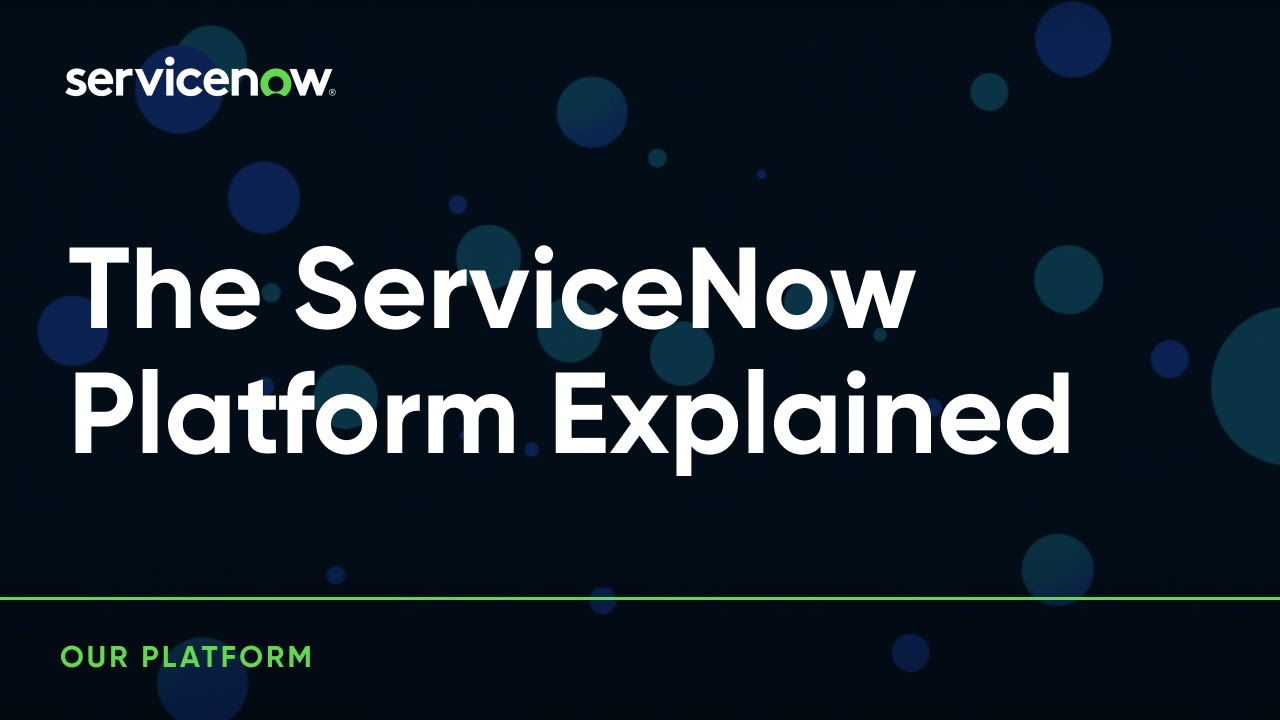The Benefits of ServiceNow
In today’s fast-paced business environment, organizations are constantly seeking ways to streamline their operations, improve efficiency, and enhance productivity. ServiceNow, a leading cloud-based platform, offers a wide range of solutions that can help businesses achieve these goals. In this article, we will explore the numerous benefits of ServiceNow and how it can revolutionize your organization’s workflow.
Enhanced Collaboration and Communication
ServiceNow provides a centralized platform that enables seamless collaboration and communication across different departments and teams within an organization. With its intuitive interface and robust features, ServiceNow allows employees to easily share information, exchange ideas, and work together towards common objectives. This fosters a culture of collaboration, improves decision-making processes, and ensures everyone is on the same page.
Efficient IT Service Management
One of the key strengths of ServiceNow lies in its comprehensive IT Service Management (ITSM) capabilities. It offers a range of tools and functionalities that enable organizations to efficiently manage their IT services, including incident management, problem management, change management, and asset management. By automating manual processes and providing real-time visibility into IT operations, ServiceNow helps businesses reduce downtime, enhance service quality, and improve customer satisfaction.
Streamlined Workflow Automation
ServiceNow’s workflow automation capabilities empower organizations to automate routine tasks and processes, eliminating the need for manual intervention. This not only saves time and reduces human error but also enables employees to focus on more strategic and value-added activities. With ServiceNow, businesses can automate approvals, notifications, escalations, and other repetitive tasks, leading to increased efficiency and productivity.
Improved Service Delivery
ServiceNow enables organizations to deliver exceptional services to their customers by providing a unified and consistent service experience. It allows businesses to define and enforce service level agreements (SLAs), track performance metrics, and generate insightful reports. With ServiceNow, organizations can proactively identify service bottlenecks, address issues promptly, and continuously improve service delivery, resulting in increased customer satisfaction and loyalty.
Enhanced Security and Compliance
ServiceNow prioritizes security and compliance, offering robust features to protect sensitive data and ensure regulatory compliance. It provides advanced access controls, encryption, and monitoring capabilities to safeguard critical information. Additionally, ServiceNow helps organizations streamline their compliance processes by automating documentation, audit trails, and risk assessments. By leveraging ServiceNow’s security and compliance features, businesses can mitigate risks, maintain data integrity, and meet industry standards.
Cost Savings and Scalability
ServiceNow’s cloud-based platform eliminates the need for extensive hardware and infrastructure investments. It offers a flexible and scalable solution that can be tailored to meet the specific needs of organizations of all sizes. With ServiceNow, businesses can reduce operational costs, optimize resource utilization, and easily scale their operations as they grow. This makes ServiceNow a cost-effective choice for organizations looking to streamline their processes without significant upfront investments.

ServiceNow is a powerful platform that offers numerous benefits to organizations across various industries. From enhancing collaboration and communication to streamlining workflows and improving service delivery, ServiceNow can transform the way businesses operate. By leveraging its comprehensive features and capabilities, organizations can achieve higher efficiency, productivity, and customer satisfaction. Embrace the power of ServiceNow and unlock your organization’s full potential.
Frequently Asked Questions about the Benefits of ServiceNow
1. What are the key benefits of using ServiceNow?
ServiceNow provides improved efficiency, streamlined processes, enhanced collaboration, and better customer satisfaction.
2. How does ServiceNow enhance efficiency?
ServiceNow automates manual tasks, eliminates paper-based processes, and offers self-service options, resulting in faster and more efficient operations.
3. Can ServiceNow improve collaboration within an organization?
Yes, ServiceNow provides a centralized platform for communication, collaboration, and knowledge sharing, enabling teams to work together more effectively.
4. Does ServiceNow help in reducing costs?
Absolutely! ServiceNow helps in reducing costs by optimizing resource allocation, minimizing downtime, and eliminating unnecessary expenses through automation.
5. How does ServiceNow enhance customer satisfaction?
ServiceNow provides a seamless and personalized customer experience by offering self-service portals, quick issue resolution, and proactive communication.
6. Can ServiceNow improve IT service management?
Yes, ServiceNow offers robust IT service management capabilities, enabling organizations to streamline IT processes, improve service delivery, and reduce downtime.
7. Does ServiceNow support scalability?
ServiceNow is highly scalable and can accommodate the needs of small businesses to large enterprises, ensuring that the platform grows with the organization.
8. How does ServiceNow help in compliance management?
ServiceNow provides tools for automating compliance processes, tracking regulatory requirements, and generating reports to ensure organizations remain compliant with industry standards.
9. Can ServiceNow integrate with other systems?
Yes, ServiceNow offers extensive integration capabilities, allowing seamless integration with other systems such as CRM, ERP, and HR software.
10. Does ServiceNow offer analytics and reporting features?
Absolutely! ServiceNow provides powerful analytics and reporting capabilities, enabling organizations to gain insights, track performance, and make data-driven decisions.




